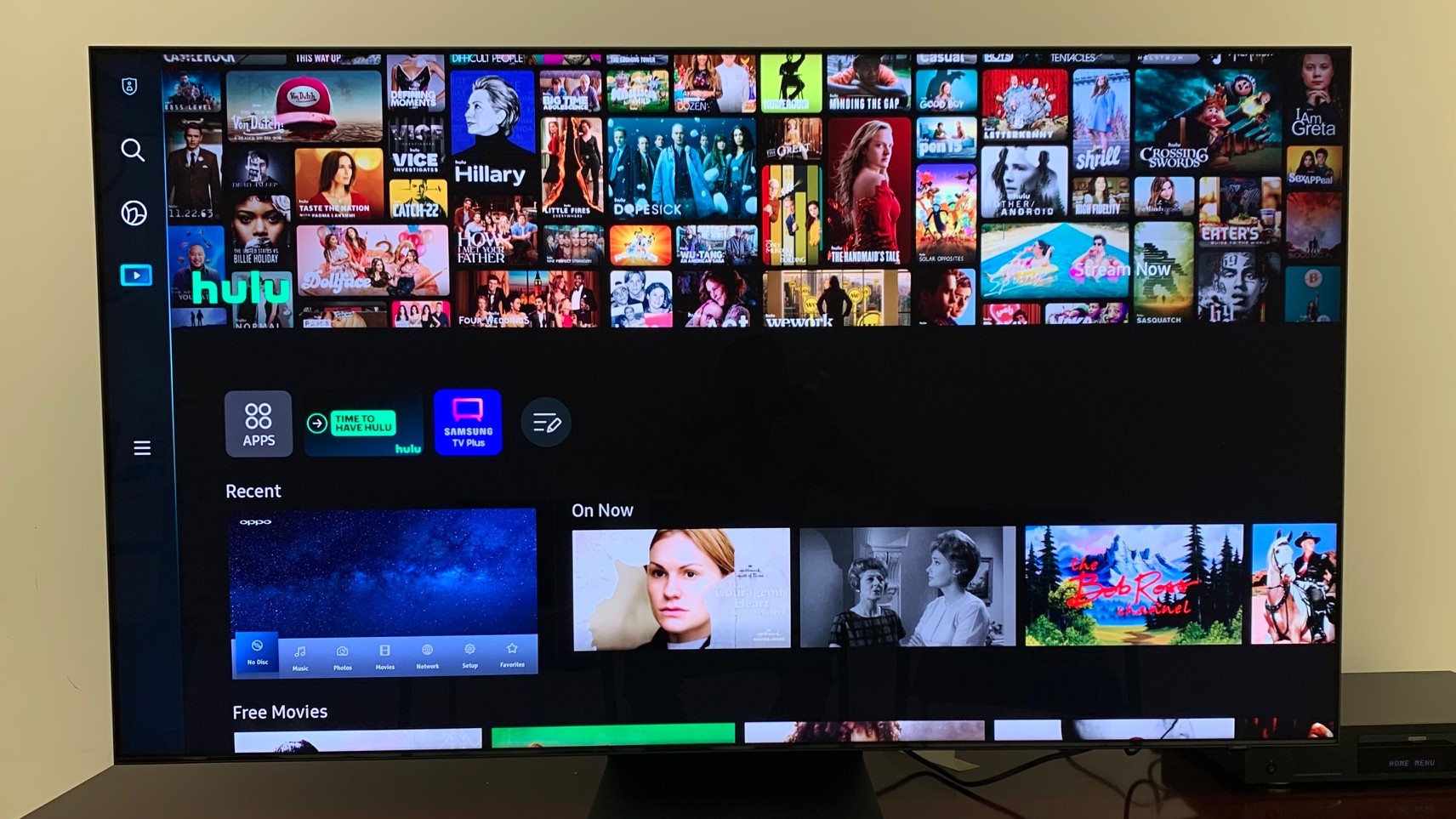Samsung’s data breach is why you shouldn’t have to sign in to smart TVs
Security risks and streaming

Sign up for breaking news, reviews, opinion, top tech deals, and more.
You are now subscribed
Your newsletter sign-up was successful
One feature shared by the best smart TVs is an onscreen user interface that lets you stream video, play games, view photos, and do a myriad other things that are limited only by the TV’s built-in capabilities.
Getting to customize this “smart” TV interface is a given, with the better models letting you add and delete streaming apps, rearrange the layout of items that appear onscreen, and even create multiple personal profiles tailored for different family members.
In most cases, you can do all of the above with the TV straight out of the box. In other instances, you’re required to create an online account with the manufacturer where you supply your name, email address, date of birth, ZIP code, and other personal information – on Samsung TVs, for example.
When I did a hands on test earlier in 2022 of Samsung’s QN90B and The Frame TVs, I was surprised to discover that a personal account had to be created to simply download a streaming app like Hulu. I had grown used to logging in to sets with the Google TV interface with my Gmail address, but didn’t recall encountering a product outside of the Google or Apple ecosystems that absolutely required the surrender of personal info to do something as basic as downloading an app.
Why is having to create a personal account to make full use of a Samsung TV a problem? On September 2, 2022 the company posted a blog entry stating that it had suffered a data breach affecting US customers. According to Samsung, the breach “did not impact Social Security numbers or credit and debit card numbers.” But it did compromise data such as “name, contact and demographic information, date of birth, and product registration information.”
The blog also provided links to the three major US credit reporting agencies so worried customers could request a free credit report. Thanks for the tip, Samsung!
What’s on TV: Your compromised personal info
A FAQ that accompanied Samsung’s data breach announcement didn’t say anything specific about TVs, though it did state that consumer devices and services were unaffected. So no – your Samsung TV won’t get riddled with malware that will hoover up credit card information you’ve furnished to Netflix or other streaming services. But the question of why viewers should have to input personal information to use a smart TV in the first place remains.
Sign up for breaking news, reviews, opinion, top tech deals, and more.
Other major TV brands with proprietary smart TV interfaces (such LG and Vizio) don’t require that you input personal information including a name and email address to carry out basic tasks like app downloads and editing the home screen, though they do require accounts to access more advanced features such as creating multiple viewer profiles in the case of LG.
Big tech companies like Google and Apple also require that you input personal information to take advantage of their services, which run the gamut from email to contact-free payments using your phone or smartwatch.
As someone who uses Gmail and other Google apps on a daily basis, I’ve readily agreed to that deal in order to take advantage of the company’s truly useful suite of services. And because I’m already firmly implanted in the Google universe, inputting that information to a Google-powered Sony or TCL TV isn’t a problem for me.
Same thing goes for Apple. As an Apple One subscriber, I’ve accepted that I’m going to be shelling out $30 per month to that company for the rest of my life so I can store all my photos, videos, communication, and documents in iCloud, and access it all from my continually updated range of Apple devices – everything from MacBooks and iPhones to Apple Watches and Apple TV boxes. But after many years as an Apple customer, I fully trust that company with my personal and financial information since it has an unblemished track record when it comes to its users' data security.
Samsung, on the other hand, just suffered a data breach that exposed the personal information of its customers, and this isn't the first time the company has experienced a major cybersecurity lapse. Clearly, Samsung needs to up its data protection game, especially if it’s going to continue requiring consumers to create a Samsung account with personal information to carry out even the most basic tasks on its TVs and other devices.
I have a simple solution to this problem for Samsung and other TV makers: don’t expect viewers to create an account to use your Smart TVs. That way, if you do experience a data breach, your customers won’t have to go scrambling to check out their credit report. Instead, they can just Netflix and chill as they should be doing.

Al Griffin has been writing about and reviewing A/V tech since the days LaserDiscs roamed the earth, and was previously the editor of Sound & Vision magazine.
When not reviewing the latest and greatest gear or watching movies at home, he can usually be found out and about on a bike.